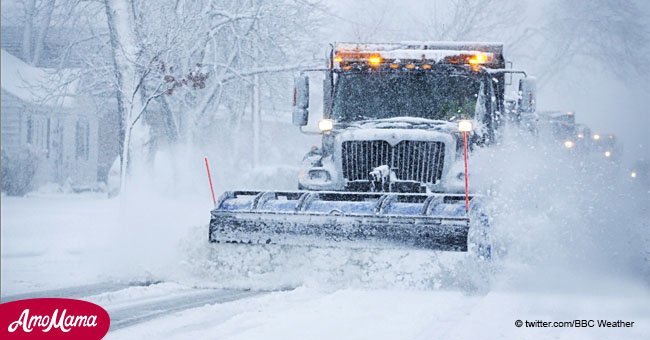
Postal services in limited mode due to life-threatening weather, cancels lots of deliveries
Extreme temperatures caused by a polar vortex in the Midwest has forced the US Postal Service to cancel deliveries in certain areas.
Record-breaking freezing temperatures have already affected places in the Midwest region. As a result, schools were closed and persons have even been advised not to converse outside.
Additionally, the US Postal Service (USPS) announced that they will not deliver mail to areas in Michigan, Iowa, Minnesota, North and South Dakota, Ohio, Indiana, Pennsylvania, Wisconsin, and Illinois.
The suspension of delivery services is necessary to "ensure the safety and well-being" of USPS workers according to a statement from the organization. Other locations will be monitored to determine if the service should be stopped as well.
The limited suspension means that a few retail offices will stay open. However, it is unclear when full USPS deliveries will resume.
The record-breaking temperatures will likely hit Chicago the hardest. History shows that the last time the windy city saw temperatures below 11 degrees were once in 1983 and again in 1994.
Now, over 20 years later, Chicago is set to experience over 12 degrees below. It may even reach -25 below temperature, competing with locations like Alaska and Greenland.
The death of four people has so far been attributed to the cold weather. One man was frozen to death in Milwaukee, while another was hit by a Chicago snowplow.
A couple who died from a crash of their SUV was found on a snow-covered Indiana road. Meanwhile, Chicagoan train crews set fire to their tracks so that they wouldn't freeze.
The Mayor of Chicago, Rahm Emanuel, encouraged persons needing warm beds to pick them up or go to "warming centers." And the National Weather Service of Des Moines, Iowa discouraged people from speaking outside.
They said:
“Make sure your mouth is covered to protect your lungs from severely cold air. Avoid taking deep breaths; minimize talking.”
The statement continued:
“This is the coldest air many of us will have ever experienced. It’s not a case of ‘Meh, it’s Iowa during winter and this cold happens.’ These are record-breaking cold air temperatures, with wind chill values not seen in the 21st century in Iowa.”
Climate change and global warming have led to more extreme weather conditions in many parts of the world. However, the President himself is against the science-back phenomena.
President Donald Trump made his typical argument on Monday against global warming. He asked: "What the hell is going on with Global Warming? Please come back fast, we need you!"
Surprisingly, the president got a response from one of his own departments that immediately shut down his tweet. The National Oceanic and Atmospheric Administration replied on Tuesday.
They wrote:
“Winter storms don’t prove that global warming isn’t happening."
They accompanied it with an illustration that showed how warmer oceans give moisture to storms, making them bigger. Trump hasn't responded to the agency's comeback as of yet.
